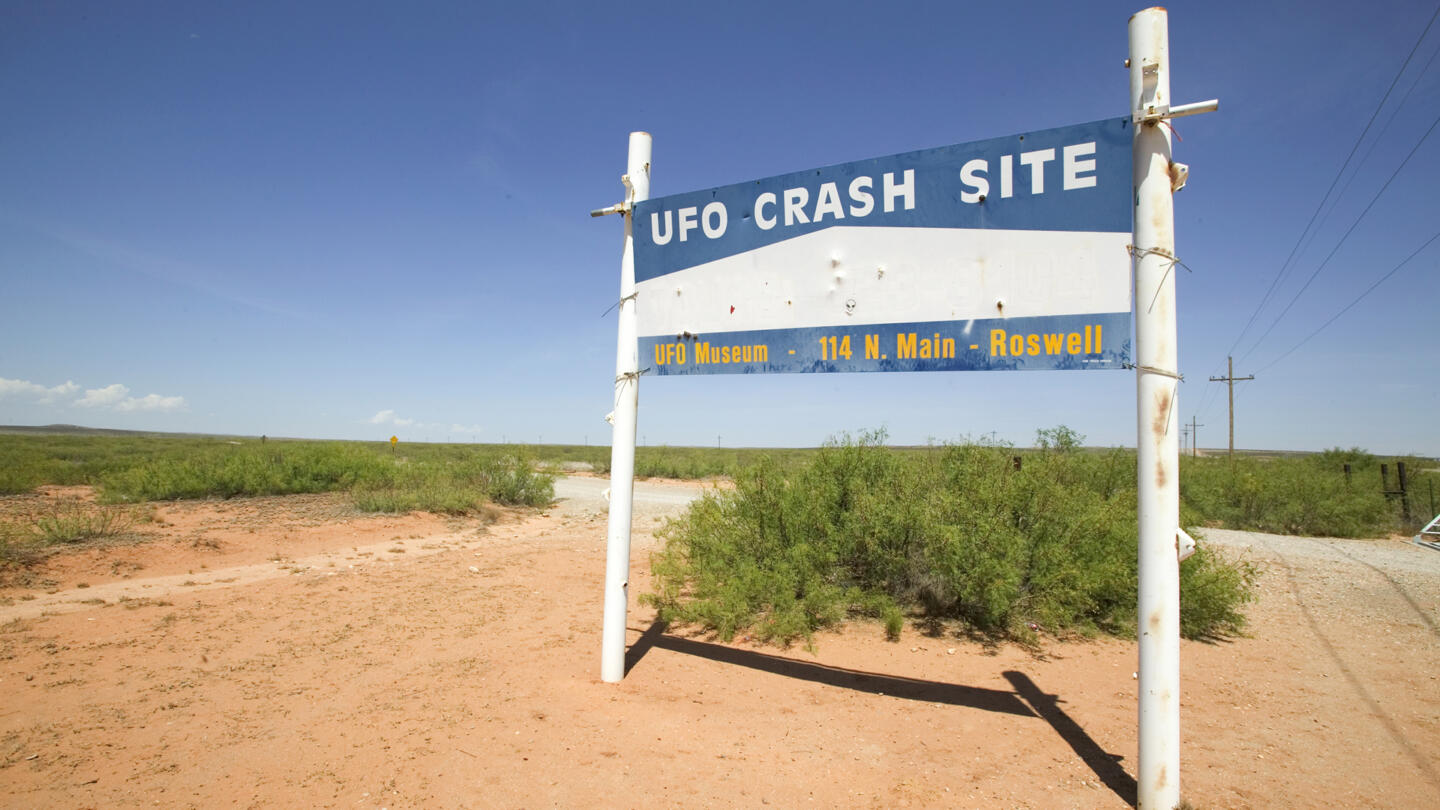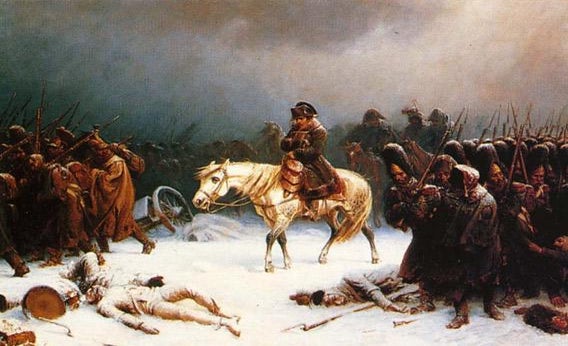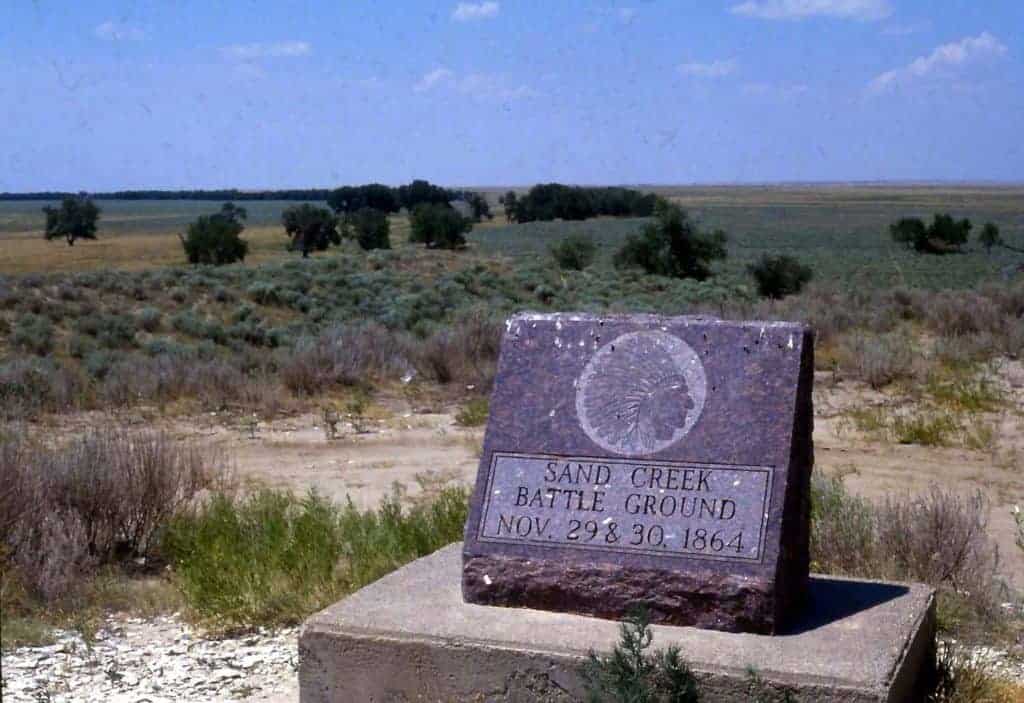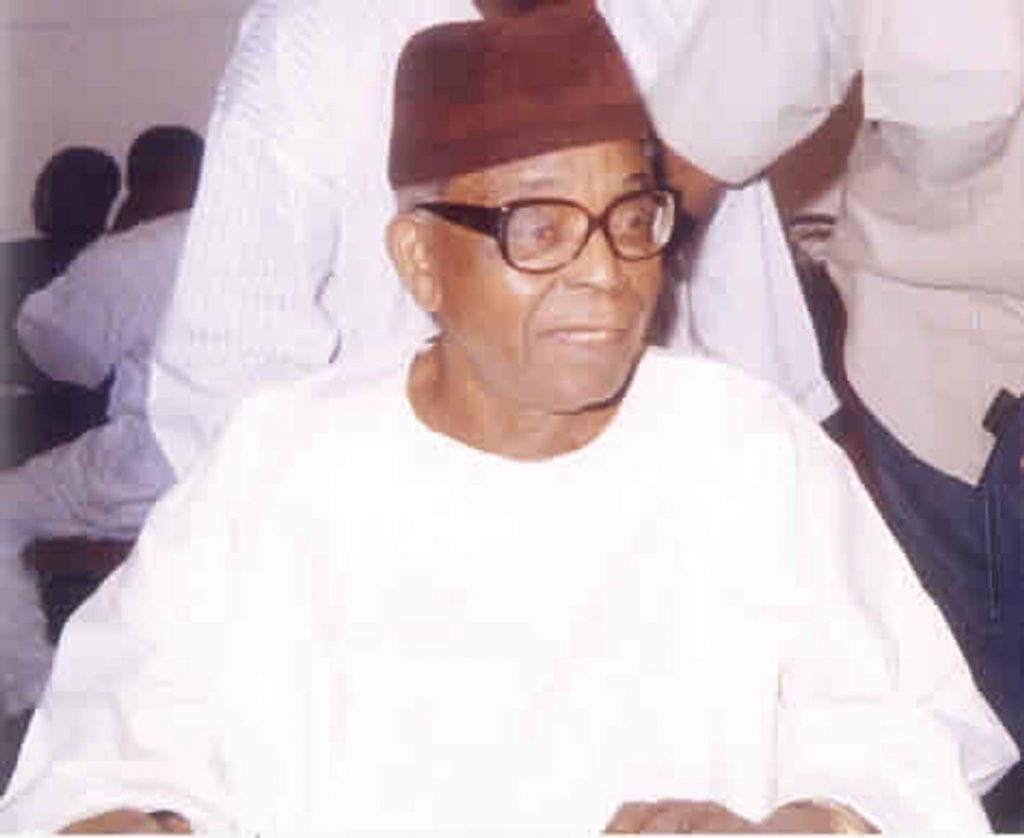
U.S. Air Force reports on Roswell
On June 24, 1997, U.S. Air Force officials release a 231-page report dismissing long-standing claims of an alien spacecraft crash in Roswell, New Mexico, almost exactly 50 years earlier.
Public interest in Unidentified Flying Objects, or UFOs, began to flourish in the 1940s, when developments in space travel and the dawn of the atomic age caused many Americans to turn their attention to the skies. The town of Roswell, located near the Pecos River in southeastern New Mexico, became a magnet for UFO believers due to the strange events of early July 1947, when ranch foreman W.W. Brazel found a strange, shiny material scattered over some of his land. He turned the material over to the sheriff, who passed it on to authorities at the nearby Air Force base. On July 8, Air Force officials announced they had recovered the wreckage of a “flying disk.” A local newspaper put the story on its front page, launching Roswell into the spotlight of the public’s UFO fascination.
The Air Force soon took back their story, however, saying the debris had been merely a downed weather balloon. Aside from die-hard UFO believers, or “ufologists,” public interest in the so-called “Roswell Incident” faded until the late 1970s, when claims surfaced that the military had invented the weather balloon story as a cover-up. Believers in this theory argued that officials had in fact retrieved several alien bodies from the crashed spacecraft, which were now stored in the mysterious Area 51 installation in Nevada. Seeking to dispel these suspicions, the Air Force issued a 1,000-page report in 1994 stating that the crashed object was actually a high-altitude weather balloon launched from a nearby missile test-site as part of a classified experiment aimed at monitoring the atmosphere in order to detect Soviet nuclear tests.
On July 24, 1997, barely a week before the extravagant 50th anniversary celebration of the incident, the Air Force released yet another report on the controversial subject. Titled “The Roswell Report, Case Closed,” the document stated definitively that there was no Pentagon evidence that any kind of life form was found in the Roswell area in connection with the reported UFO sightings, and that the “bodies” recovered were not aliens but dummies used in parachute tests conducted in the region. Any hopes that this would put an end to the cover-up debate were in vain, as furious ufologists rushed to point out the report’s inconsistencies. With conspiracy theories still alive and well on the Internet, Roswell continues to thrive as a tourist destination for UFO enthusiasts far and wide, hosting the annual UFO Encounter Festival each July and welcoming visitors year-round to its International UFO Museum and Research Center.

CRIME
1993
Mail bomb injures Yale professor
On June 24, 1993, Yale University computer science professor David Gelernter is seriously injured while opening his mail when a padded envelope explodes in his hands. The attack just came two days after a University of California geneticist was injured by a similar bomb.

COLONIAL AMERICA
1675
King Philip’s War begins
In colonial New England, King Philip’s War begins when a band of Wampanoag warriors raid the border settlement of Swansee, Massachusetts, and massacre the English colonists there. In the early 1670s, 50 years of peace between the Plymouth colony and the local Wampanoag Indians.

FRANCE
1812
Napoleon’s Grande Armee invades Russia
Following the rejection of his Continental System by Czar Alexander I, French Emperor Napoleon orders his Grande Armee, the largest European military force ever assembled to that date, into Russia. The enormous army, featuring some 500,000 soldiers and staff, included troops.

VIETNAM WAR
1970
Senate repeals Gulf of Tonkin Resolution
On an amendment offered by Senator Robert Dole (R-Kansas) to the Foreign Military Sales Act, the Senate votes 81 to 10 to repeal the Tonkin Gulf Resolution. In August 1964, after North Vietnamese torpedo boats attacked U.S. destroyers (in what became known as the Tonkin Gulf).

U.S. PRESIDENTS
1953
Jacqueline Bouvier and Senator John F. Kennedy announce engagement
On June 24, 1953, Jacqueline Bouvier and Massachusetts Senator John F. Kennedy publicly announce their engagement. Kennedy went on to become the 35th president and Jackie, as she was known, became one of the most popular first ladies ever to grace the White House.

WESTWARD EXPANSION
1864
Colorado governor orders Native Americans to Sand Creek reservation
Colorado Governor John Evans warns that all peaceful Native Americans in the region must report to the Sand Creek reservation or risk being attacked, creating the conditions that will lead to the infamous Sand Creek Massacre. Evans’ offer of sanctuary was at best halfhearted.

ART, LITERATURE, AND FILM HISTORY
1997
Disney pulls Insane Clown Posse album on release day
On June 24, 1997, the Walt Disney Corporation orders one of its subsidiary record labels to recall 100,000 already shipped copies of an album by a recently signed artist—Insane Clown Posse—on the day of its planned release.

ART, LITERATURE, AND FILM HISTORY
2005
Tom Cruise raises eyebrows in “Today” show interview
The actor Tom Cruise has an infamous interview with Matt Lauer, host of NBC’s morning talk show Today, on June 24, 2005. During the interview, Lauer challenged Cruise about critical comments the actor had made regarding the actress Brooke Shields’ use of anti-depressant.

COLD WAR
1948
Soviets blockade West Berlin
One of the most dramatic standoffs in the history of the Cold War begins as the Soviet Union blocks all road and rail traffic to and from West Berlin. The blockade turned out to be a terrible diplomatic move by the Soviets, while the United States emerged from the confrontation.
TODAY IN NIGERIA

1923 Herbert Macaulay and his associates inaugurated the Nigerian National Democratic Party (NNDP)

1956 Twenty-four persons were reported killed in the fiery crash of a British Overseas Airways Corp. plane at Kano

1965 Chief Anthony Enahoro's trial for treason opened before a Lagos court

2003 Stella Obasanjo called the wives of the state governors to Abuja and publicly declared in front of television cameras that: ?There is only one First Lady in Nigeria. Period.?
2010 Senate unanimously approved the appointment of Attahiru Jega as chairman of the Independent National Electoral Commission
Comments
Post a Comment